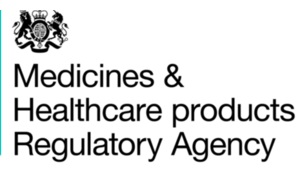
-
7th Apr 2014, 03:23 PM
#1
Documenting SAE causality in source data
Should investigators record the relationship of a Serious Adverse Event to the study drug in source documents? Or is it sufficient if the other facts of the event are recorded (Event description, severity, start and stop dates) and then for the investigator to document their medical judgement regarding the relationship on the SAE form or CRF itself?
I ask this question because I have encountered reluctance from some investigators to record this in the patient's medical records as they consider it to be a subjective rather than a factual statement. There is also the implication that there might be some impact on medical insurance where this is effective.
I would be interested to hear the opinions and experience of others on this issue. Thank you.
-
29th Sep 2014, 02:30 PM
#2
The MHRA GCP Guide (2012) might be of help here (I would recommend buying a copy):- "Adverse events should be recorded in the medical notes either by the investigators or the research nurse. ...then transcribed onto a CRF ...(if required by the protocol) which will require the assessment of seriousness and causality... If a signature of the investigator is not required on this form, investigators should endorse the relevant CRF page (if transcription has been performed by the nurse) or record the seriousness and causality assessments in the medical notes. ...... any changes are expected to be endorsed by the medically qualified doctor to document their agreement with the change“. ..... 11.4.7. Note that the MHRA GCP Guide states "the word 'should' refers to guidance-related practices" and is not a legislative requirement.
MHRA GCP Guide states “It is also recommended that the site clearly document when they were made aware of the SAE”. 11.4.7 Note that the MHRA GCP Guide states that "'recommended‘ or 'suggested‘ refers to good practice", not guidance or legislation
Also another place in the GCP Guide states:- “Examples of key events to be recorded in the subject notes include: ... adverse events (recommended to include seriousness, causality, severity) 11.5.1. Note that these are “examples” and “to be recorded” and "recommended" not a “must” or a “should”.
Currently 24Hr reporting of SAEs by the investigator to the sponsor is a “should” in the MHRA GCP Guide 1.4.3.3 & in EMA CT3 guidance) but when the Clinical Trial Regulation 536/2014 applies, the new regulation requires by law that:- “The investigator shall record and document all adverse events, unless the protocol provides differently....the investigator shall report serious adverse events to the sponsor without undue delay but not later than within 24 hours of obtaining knowledge of the events, unless, for certain serious adverse events, the protocol provides that no immediate reporting is required. ...." Article 41.2.
-
4th Jun 2015, 09:47 AM
#3
Hi,
I have a query about Adverse event (not SAE) causality assessment and documenting in source.
One of the studies i monitor is being coordinated by a university team and the team do not routinely use medical notes. I have been informed that the team did not have the need to date to refer to the medical notes of the volunteer. The medical notes are available for the team. Questions regarding medical history and conmeds are asked verbally to the volunteer and entered directly into the CRF. This is mainly because the volunteers are healthy volunteers in a low risk trial. Volunteers are asked to attend 3 visits whereby IMP is given on 2 occasions (and nothing in between the visits). Only 1 adverse event has occurred in a volunteer.
My questions are:
1. Must an adverse event's causality to IMP be determined by a physician, or can a research nurse assess the causality?
2. Should I be checking this volunteer's medical notes to ensure that the trial team have entered this adverse event?
Thank you for your advice.
E
-
4th Aug 2015, 04:50 PM
#4
Hi ecsy911 - the answers to your questions depend on the protocol and the delegation log for the trial. They should indicate who is responsible for determining relatedness of an AE to the IMP. In trials that I have monitored, this would usually be a clinician's responsibility. With regard to documenting of AEs in the medical notes, again it depends on your protocol - does it say that data can be recorded directly into the CRF? If not, then it should be recorded first in source data (i.e. medical notes) and then transcribed into the CRF. If you have permission from the trial participant to access their medical notes (i.e. via signed ICF) then you can review them to make sure anything relevant to the trial has been reported.
-
6th Aug 2015, 09:51 AM
#5
Moderator

It should be noted that access to the subject’s medical notes could be used by the study team and monitor to verify the required medical history of the healthy volunteers as per the protocol. Assuming the university trial team are documenting all the trial data directly into the CRFs as the source data, then there would be no need to access the medical notes except to review medical history. In addition, if the trial is not based within a hospital setting, as the medical notes belong to the Trust, it is unlikely the university study team would be allowed to record anything in the medical notes.
 Posting Permissions
Posting Permissions
- You may not post new threads
- You may not post replies
- You may not post attachments
- You may not edit your posts
-
Forum Rules




 Reply With Quote
Reply With Quote
